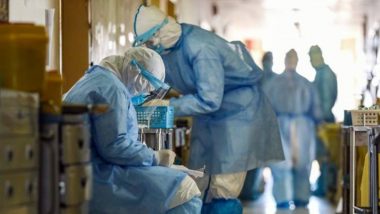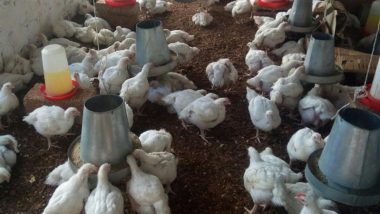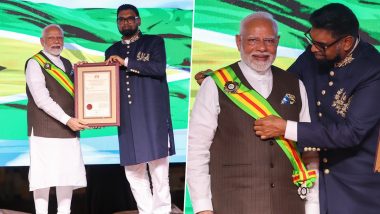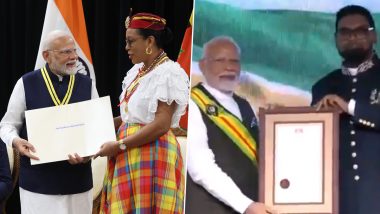New Delhi, April 5: The rate of doubling of COVID-19 cases in India is 4.1 days presently but if the cases linked to the Tablighi Jamaat congregation would not have happened, it would have been 7.4 days, the Health Ministry said on Sunday. Joint Secretary in the ministry Lav Agarwal said there had been 472 new COVID-19 cases and 11 deaths since Saturday. The total coronavirus cases stand at 3,374 and the death toll now stands at 79.
He said 267 people have recovered. However, a PTI tally of figures reported by states directly showed at least 106 deaths, while the number of confirmed cases had reached 3,624. Of the total, 284 have been cured and discharged. There has been a lag in the Union Health Ministry figures, compared to the numbers announced by different states, which officials attribute to procedural delays in assigning the cases to individual states. Coronavirus Outbreak in India: MHA Blacklists 960 Foreigners For Attending Tablighi Jamaat Event in Nizamuddin Markaz.
Asserting that there was no evidence that COVID-19 was airborne, an ICMR official said, "We need to understand that in science whoever does experiments some will have a 'for opinion and some against' but we need to take a balanced, evidence-based approach.”
"For example, if it was an air-borne infection then in a family whoever has a contact they all should come positive because they are living in same surrounding as the patient and the family is breathing the same air. When someone is admitted in hospital, other patient would have got exposure (if it was air borne) but that is not the case,” the official said.
Talking about the Tablighi Jamaat congregation, Agarwal said, "If the Tablighi Jamaat incident had not taken place and we compare the rate of doubling — that is in how many days the cases have doubled, we will see that currently it is 4.1 days (including Jamaat cases) and if the incident had not taken place and additional cases had not come then the doubling rate would have been 7.4 days."
Cabinet Secretary Rajiv Gauba on Sunday held a meeting on COVID-19 with district magistrates, superintendent of police, chief medical officers, state and district surveillance officers, state health secretaries and district health secretaries and chief secretaries, Agarwal said.
District officials shared the strategies adopted by them to combat the pandemic like how they delineated containment and buffer zone, how they carried out door-to-door survey through special teams, how through telemedicine and call centres the passengers who had come were monitored.
The districts from where many cases were reported like Agra, Bhilwada, Gautam Buddh Nagar, Pathan Mitha, East Delhi also shared their experiences and strategies adopted by them.
The main points that came from the experience shared by districts were proactive and ruthless containment implementation at field level and second is preparedness to the extent of being over prepared so that cases can be handled at any stage, Agarwal said. All DMs were instructed pharma units making devices and medicines must run seamlessly, he said.
(This is an unedited and auto-generated story from Syndicated News feed, LatestLY Staff may not have modified or edited the content body)













 Quickly
Quickly





















